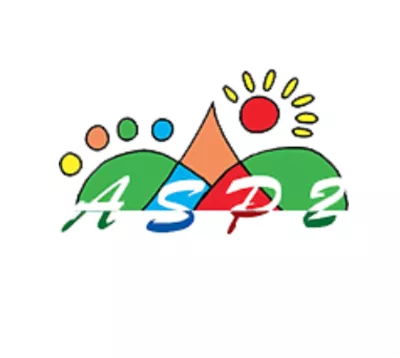General information
RDP Priority
- P6. Social inclusion and local development
RDP Focus Area
- 6B: Local development
RDP Measure
- M07: Basic services & village renewal
Beneficiary type
- Public authority / body
Summary
The key aim of the ‘Start ASP’ project was to address the lack of services experienced in the rural area of Teramo in the Abruzzo region of Italy, and to raise the quality of life of its population. For this purpose, the project promoter, ASP2 Teramo, a public sector welfare service provider, regenerated seven properties to become the new focal points for the provision of a range of basic services, including cultural, socio-health and welfare, and leisure and sports activities.
ASP2 applied an integrated and bottom-up approach when redeveloping the properties, with a particular emphasis on improving the social integration of vulnerable people. A further key component was to increase the awareness of opportunities, attract new resources and initiatives to the area, and to create new jobs. The project actively involved rural residents (including the under-40s, disabled, and disadvantaged persons), relevant stakeholders, agricultural and non-agricultural entrepreneurs, and associations.
Results
The project achieved the following quantitative and qualitative results:
- Seven regenerated properties.
- 11 new services established, including two sports services, six cultural/recreational services, and three welfare services.
- 15 jobs created, including positions for operators, teachers, local animators, and psychologists.
- New public and private financial resources utilised.
Resources
Documents
Context
ASP2 is one of two public companies that deliver person-focused welfare services in the Province of Teramo, Italy.
The companies manage, organise, and provide a wide range of social welfare services. This includes socio-healthcare provision, assistance to vulnerable people, and the provision of residential and semi-residential educational services.
The activities of ASP2 are targeted at disadvantaged individuals with physical, psychological, and relational disabilities, and those who are at risk of social exclusion in the social district of ‘Fino-Cerrano’. This includes programmes that protect women and minors from violence, and activities that help alleviate poverty. ASP’s activities are aimed at enabling the full development of individuals by removing barriers and promoting their social and occupational integration.
The spectrum of services is delivered in line with the strategic aims of the social policy fund and the respective local plans. The territory is characterised by its rural nature, and has an overall population of 17 625. The Fino-Cerrano social district suffers from the typical phenomena of rural marginalisation, such as ageing, abandonment, and a reduction of basic services. Much of its territory is included in the National Strategy for Inland Areas as a priority area for interventions in education, healthcare, and education services.
At the outset of the ASP project, ASP2 was keen to enhance its role, demonstrating that it was capable of supporting individuals, and promoting the creation of additional local services to integrate the range of available opportunities within its territory, thereby attracting new resources and initiatives to the area.
Objectives
The main objectives of the project were to regenerate seven individual public properties in six local communities. The ambition was to improve and re-activate the buildings so that a range of improved basic social services could be delivered locally. This was particularly relevant for vulnerable individuals with disabilities and other disadvantages.
Working across a number of local areas, the project also sought to establish a public-private support network by connecting stakeholders in Teramo. The ambition was to work jointly on the improvement of local services, and to develop resilient communities, thereby laying sound foundations for reversing the de-population trend.
Finally, the project aimed at generating new employment opportunities for professionals, social enterprises, and third-sector organisations, and thus enable local people to stay in Teramo.
The key stakeholders of the project included non-profit associations, local municipalities, rural development organisations, businesses, local health authorities, and relevant regional representatives.
Activities
The project involved managing simultaneous interventions on six properties located in the municipalities of Arsita, Atri, Bisenti, and Pineto.
- Rurabilandia (Atri Municipality) – An educational and social farm providing services to minors and young people with disabilities. The project helped renovate the building, improved the outdoor area, and installed new facilities for recreational and sports activities to enable the farm to provide new services.
- "R. Margherita" Kindergarten (Pineto Municipality) – The project activities focused on adapting the functional and technological aspects of the historic building of the kindergarten, and also included internal renovations. These works enabled the municipality to relocate the kindergarten from the first to the ground floor, next to a reception and other cultural spaces. The relocation created space on the first floor for a pharmacy, primary care physician, and municipal service counter. The project further purchased supplies and equipment for opening these new services.
- Former Nursery School (Bisenti Municipality) – The project involved renovating the existing building and adapting its layout to create space for a number of new services. This included a multimedia library, a historical-cultural museum, and a community centre for the elderly, children, and vulnerable social groups. The activities further fostered the collaboration with an association, entrusting it with the management of the new activities.
- C.A.S.A. Social Aggregation Centers in Arsita (Arsita Municipality) – The project helped renovate and adapt two mountain shelters. The first shelter was converted into a multipurpose space with an exhibition hall. The second was enhanced to provide recreational activities for young people. Project activities further included purchasing relevant supplies. Finally, a third-sector organisation was entrusted with managing the new spaces.
- Media Library/Toy Library at the Castorani Institute (Giulianova Municipality) – The project activities involved the restoration and other renovation works of the building so that it can be used for the provision of new cultural, sports, and welfare services.
- Multipurpose Sports Field (Giulianova Municipality) – The project redeveloped and modernised the existing sports field. This included technical upgrading works to make the space compliant with safety regulations, and energy efficiency measures. Further activities involved handing over a range of new sports services to the Castorani Institute.
Main results
- Seven regenerated properties.
- 11 new services established, including two sports services, six cultural/recreational services, and three welfare services.
- 15 jobs created, including positions for operators, teachers, local animators, and psychologists.
- New public and private financial resources used.
- The new activities fostered personal development, self-esteem, and the psychophysical well-being of users.
- The new activities also increased the social inclusion and active participation of disabled and disadvantaged individuals in the rural community.
- The project created new opportunities for socialising, thereby strengthening interpersonal relationships, both among the beneficiaries and with the local community.
- Social support networks were enhanced through the collaboration with associations, volunteers, and professionals delivering social services.
- The project improved the valorisation of local knowledge and skills.
- The involved territories and local actors have benefited from increased visibility and pride.
Key lessons
- Direct social inclusion and capacity-building benefits can be created for rural populations when the management of a project is based on a bottom-up and coordinated approach involving multiple local entities.
- The active involvement of stakeholders enhances decision-making at the local level, whereby it is important to engage local institutional and non-institutional organisations and stakeholders, both in the planning and execution phases of an intervention.
- The project developed new public services in partnership with associations and third-sector organisations to meet the needs of the local population. This changed the role of the public administration from being the sole provider of services to becoming a regulator and facilitator of their delivery, including social, cultural, economic, sports, and leisure activities.
Empowering Rural Communities through Essential Local Services

